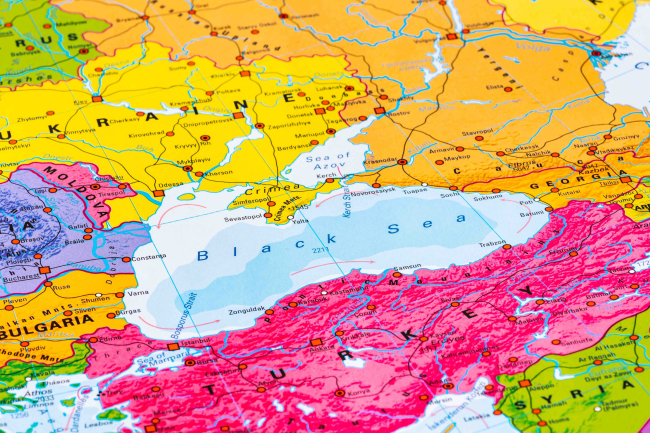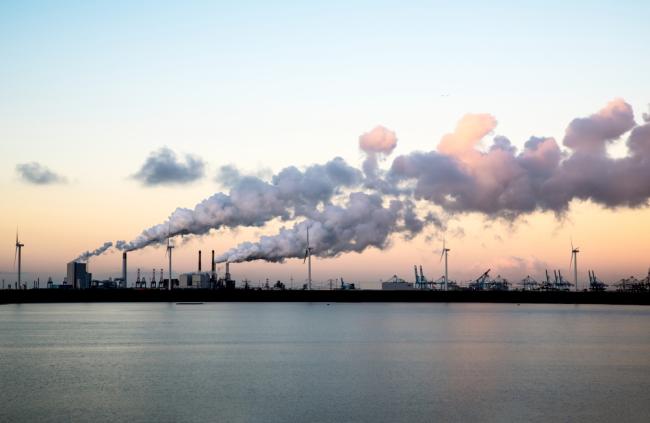The ‘Fit-for-55’ Package: A Giant Leap for the European Economy?

Practical information
Themes and regions
Related centers and programs
With the “Fit for 55” package, the European Union (EU) is the first global player to turn its climate neutrality pledge into a wide set of transformative policy proposals.

This complete overhaul of climate legislation will reshape the European economy at high speed, with far-reaching implications for all individuals, all sectors, and all trading partners.
To complete the negotiation journey, EU legislators will have to ensure fairness and cost-efficiency by striking the right balance between carbon pricing, standardization and facilitating measures. In this context, how should the Commission’s proposals be adjusted? Which trade-offs can be envisaged to bridge political and national divides? In the end, how to ensure that the EU now delivers on the Green Deal’s promise of a climate-neutral and prosperous economy?
Chair: Marc-Antoine Eyl-Mazzega, Director, Center for Energy & Climate, Ifri
- Pascal Canfin, Member of the European Parliament (Renew Europe Group) and Chair of the ENVI committee
- Henrike Hahn, Member of the European Parliament (Greens/EFA Group), spokesperson for industrial policy for the German Greens in the European Parliament, Member of the ITRE commitee, Substitute Member of the ECON and BUDG commitees
Moderator: Carole Mathieu, Head of EU Energy & Climate Policies, Center for Energy & Climate, Ifri
Watch it again on YouTube: https://www.youtube.com/watch?v=c7DN_QQ5YZo
Find out more
Can the Biggest Emitters Set Up a Climate Club? A Review of International Carbon Pricing Debates
The world’s largest emitting countries are reconsidering the role of carbon pricing instruments and increasingly looking at carbon border adjustment mechanisms (CBAMs) to address leakage concerns. This renewed momentum should trigger a broader discussion on how to make trade policies compatible with the climate agenda.
Is the TEN-E Regulation Fit for a Decarbonized Future? A Battle to Shape the European Energy Transition
The European Union’s energy infrastructure policy has become obsolete with the adoption of both the Green Deal and the 2050 climate neutrality target. The ongoing review of the regulation on Trans-European Energy Networks (TEN-E) should lead to an-depth discussion on Europe’s energy transition strategy.
CCUS in Europe: A New Role and Implications for France and Germany
A second wave of carbon capture, utilization and storage (CCUS) projects is under development, and it is much different from the 2000 wave. While Norway, the United Kingdom and the Netherlands are at its forefront, France and Germany have major competencies, and many projects could be carried out in these countries.
Related Subjects
Other events

Affirming European Security in Ukraine and the Black Sea Region
European security has been challenged in 2022 with the full-fledged invasion of Ukraine by the Russian Federation.

Post-war Europe: How to Redefine a Security Architecture Within a New Transatlantic Framework?
A new European security architecture has to be built. The question is: will this happen with or without Europe? The US President, Donald Trump, who returned to the White House a little more than two months ago, and the President of the Russian Federation, Vladimir Putin, have initiated talks to put an end to the war in Ukraine, with the possibility of Ukraine ceding territory to Russia being raised.

Doing Politics in African Cities: Actors, Causes and Forms of Urban Social Mobilization
From Maputo to Nairobi and from Lagos to Dakar: recently, African cities have been the theatre of mobilizations by groups of young protesters.










